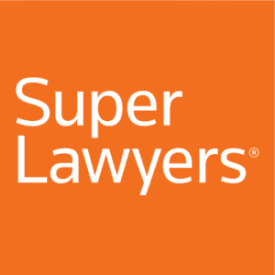Superior Court Reinstates $575,000 Verdict
On December 26, 2013, in Ferguson v. Morton, No. 465 EDA 2013, 2013 PA Super 329, 2013 Pa. Super. LEXIS 4574, the Pennsylvania Superior Court reversed a Philadelphia trial court judge and reinstated a $575,000 verdict. Daniel J. Siegel and Molly Barker Gilligan, of the Law Offices of Daniel J. Siegel, LLC, served as appellate counsel, and Mr. Siegel argued the case before the Superior Court.http://www.danieljsiegel.com
In this case, the trial court threw out the verdict based upon its conclusion that plaintiff’s counsel had injected punitive damages into his closing argument, and that the verdict was tainted by those remarks. On appeal, the Superior Court, in a published precedential opinion by Judge David Wecht, reversed and reinstated the verdict. The Court agreed with plaintiff’s argument that the trial court had provided almost no insight into its basis for determining that counsel’s remarks were so prejudicial as to require a new trial. The Court noted that, “In its opinion, the trial court merely excerpted [counsel’s]summation and offered a conclusory statement to the effect that these comments necessarily prejudiced the jury, notwithstanding the court’s numerous and persistent efforts to ameliorate each transgression and preserve the integrity of the trial. … [we] disagree that the remarks in question so obviously compromised the jury’s deliberations as to establish a basis for the grant of a new trial. To the contrary, we believe that the trial court’s curative instructions, admonitions of [counsel] in the presence of the jury, and the court’s jury charge were more than ample to ameliorate any risk of undue harm to [the defendant’s] interests, and that the jury’s verdict signaled that no such unfairness actually resulted from [counsel’s] regrettable behavior.”
This is latest case in which we have been appellate counsel and have obtained a reversal of a trial court’s decision. For example, in Lewis v. CRC Indus., 2010 PA Super 179 (Pa. Super. Ct. 2010), the Superior Court ordered a new trial in a products liability action, concluding that the trial court’s instructions to the jury were confusing and that a new trial was warranted following a verdict for the defendant.
Similarly, in Barnes v. Keller, 2012 PA Super 259 (Pa. Super. Ct. 2012), the Superior Court reversed a trial court’s grant of summary judgment. The Court agreed that the trial cour record contained evidence from which a reasonable person could conclude that the employee/plaintiff was vehicle oriented at the time of the accident. Because genuine questions of fact existed on the employee’s entitlement to UM benefits, the trial court’s grant of summary judgment was improper.
In each of these cases, and others, Attorneys Daniel J. Siegel and Molly Barker Gilligan, of the Law Offices of Daniel J. Siegel, LLC served as appellate counsel.






